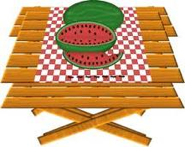
The September 2010 Ensign magazine has an article called, "Using Preach My Gospel to Teach New Members". Its the story of a particular new member and the couple assigned to teach her the new member lessons and their positive experience in using Preach My Gospel.
If you are involved with teaching the new member discussions/lessons, you've probably noticed that there isn't any specific instruction on how to do them, other than, "After baptism, new members are taught the first four lessons again, as well as “Laws and Ordinances (the 5th discussion/lesson). Ward leaders determine whether ward missionaries or full-time missionaries lead out in ensuring that these lessons are taught and how long full-time missionaries are involved" (Preach My Gospel, page 29)
In the "olden days" before Preach My Gospel (when I was a recent convert and later a full-time missionary), there was a separate set of discussions that further explained programs of the Church like visiting teaching/home teaching, accepting and serving in callings, family home evening, preparing to attend the temple, etc. and other things that new members need to know. Even though these things aren't discussed in as much detail in the regular set of lessons in Preach My Gospel that we use now, they are still important parts of teaching new members about membership in the Church, so we try to make sure that these sorts of things are explained well, either during new member discussions or Sunday School, etc.
Since the new members are at least somewhat familiar with the concepts taught in the first 4 discussions, we don't approach it as if they are hearing them for the first time. I like to use Preach My Gospel lessons as a jumping off point for each of the new member discussions we teach. The depth we go into depends on the situation and the specific new member. You can usually tell how much detail you need to go into by asking questions about the topic, like, "Why do you think baptism is so important?" or "What were your feelings when the Elders taught you about the Word of Wisdom?" Their answers can give you an idea of their level of understanding.
We try to go into more specific detail about how those principles apply to our lives as members of the Church. For example, the 3rd discussion is "The Gospel of Jesus Christ" (which covers faith, repentance, baptism, gift of the holy ghost, and enduring to the end), so we normally focus on how members of the Church make and keep covenants (like baptism) and that the Sacrament is very important because it helps us to repent and renew our covenants each week. These are probably things that they still remember from their original discussions, but it doesn't hurt to reinforce these concepts.
Last week we had a brand new member over for her first "new member discussion". We invited her and her children over for Family Home Evening, and also invited the full-time missionaries over (to help with the transition). The first discussion is about the Restoration, so our FHE lesson was about Joseph Smith's First Vision and why it is important to us today. We did the whole thing regular FHE style, with pictures and a song, treats, etc. Afterward, I gave the new member a FHE resource book and explained a little bit about more about the FHE
program (why we do it, different ways it can be done, etc).
I think it was really successful because we incorporated the doctrine, but also had the family in our home and also modeled a FHE for them at the same time. This format may not work for every situation, but we can find ways to make the new member discussions helpful and informative for any new member. Preach My Gospel gives us the freedom to do that!







